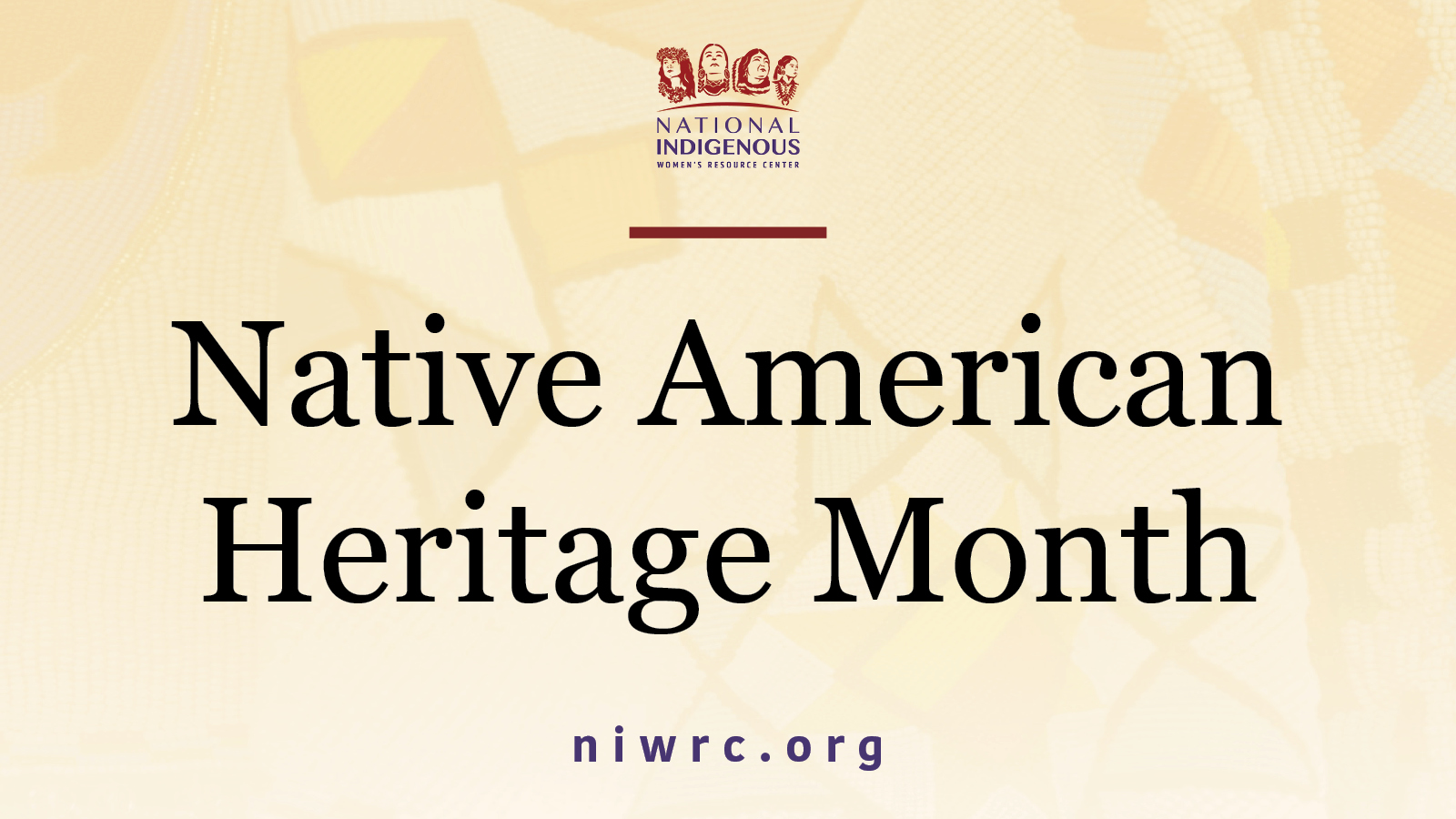
November 16, 2022: Research - Native American Heritage Month
“When it comes to self-governance, Tribes have worked hard to deliver services to their people in a way that no third party ever could which includes the protection of its women and children.”
— Jim Gray, Principal Chief of Osage Nation of Oklahoma (2002-2010)
For Native American Heritage Month, the National Indigenous Women’s Resource Center (NIWRC) pledges to uplift Native voices to stand and protect Tribal sovereignty and self-determination.
It is our mission to support culturally grounded, grassroots advocacy and provide national leadership to ending gender-based violence in Indigenous communities through the development of educational materials, direct technical assistance, and the development of local and national policy that builds the capacity of Indigenous communities and strengthens the exercise of Tribal sovereignty and self-determination.
Over the course of history, Indian Country has felt the colonial policy pressures of diminishment starting with the doctrine of discovery, the principle that land and people can be "discovered" and acquired, disregarding and nullifying the existence of Indigenous peoples. Native American Heritage Month is a time for honoring and understanding Native voices and peoples as more than a race, more than a "discovery." We are sovereign Tribes. We have the ability to self-govern inherent rights and protection factors for our lands, traditions, languages, economics, and the safety and security of our women and children.
Let us be reminded that Tribal nations are directly included in the United States Constitution. In Article 1, Section 9, it is stated that “Congress shall have the power to regulate Commerce with foreign Nations, and among the several States, and with the Indian Tribes.” (Understanding Tribal Sovereignty).
Moreover, our inherent Tribal sovereignty is also embedded in the understandings of Chief Justice John Marshall in the Marshall Trilogies. Marshall writes, “[Tribal nations] have always been considered as distinct, independent political communities, retaining their original natural rights, as the undisputed possessors of the soil."
We must continue to acknowledge and enhance the inherent rights of Tribes as sovereign entities, rights that have been possessed since “time immemorial." Knowledge of the above framework is imperative in addressing domestic violence and assault in Indian Country as it allows us, advocates and relatives, to keep Tribal sovereignty at the center of our work.
As Native Americans and allies, we encourage you to continue supporting Tribal nations. Our people hold the powers of Tribal sovereignty and self-determination. Let us continue to flourish and thrive, to use that power for what is best for our communities.
Resources to Explore
-
Sovereignty: An Inherent Right to Self-Determination (Poster) by NIWRC
-
Sovereignty: An Inherent Right to Self-Determination (.PDF Brochure) by NIWRC
-
Tribal Governance (Webpage) by the National Congress of American Indians
-
Marshall Trilogy (Webpage) by the University of Alaska Fairbanks
-
Sovereignty: A Brief History in the Context of U.S. "Indian law" (Article) by Peter d'Errico
References
Deloria, V., Deloria, B., Foehner, K., & Scinta, S. (1999). Spirit & Reason The Vine Deloria, jr., reader. Fulcrum Pub.
Emily Proctor, M. S. U. E. (2017, January 26). Understanding tribal sovereignty. Tribal Extension.
www.browsermedia.com, B. M.-. (n.d.). Tribal governance. NCAI.
Doctrine of Discovery





